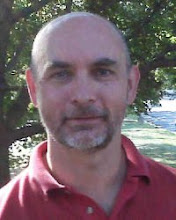- Have you ever had an experience in which you sensed deeply the Presence of God?
- Have you ever found yourself in a situation in which you just knew – in a way that you couldn’t put in to words – that you were in the presence of something truly Good, truly Holy, truly Divine?
- Have you ever been caught off guard by something quite extra-ordinary in the midst of the very ordinary, something that caused you to stop what you were doing and really, really pay attention?
Such “burning bush” experiences are not infrequent in Sacred Scripture, nor are they infrequent in the lives of holy women and men throughout history, women and men who do great things because of what they understand God to be asking of them.
- For Mary of Nazareth, her experience of the angel-messenger lead her to say “yes” to something she didn’t fully understand, but which she knew was from God.
- For her husband Joseph, his dream experience lead him to abandon his own plans of quietly putting Mary out and instead choosing to cooperate in God’s plan for his life, a plan which was at odds with what he saw as his future.
- The self-described unbeliever, Thomas Merton, found himself drawn to a Catholic liturgy in a New York City church that changed his life and set him down an unpaved road of conversion, faith, and mystic spirituality, ultimately becoming one of the most influential Catholic writers of the last century.
- For Teresa of Calcutta, her “call within a call” came on a train ride on the way to annual retreat when she was still a Sister of Loreto, a call she would describe as Jesus’ own plea to “satisfy his thirst” by serving the poorest of the poor.
Perhaps you answered “yes” to one or more of those questions that I mentioned at the beginning. Perhaps you, too, have had a “burning bush” experience – a moment of great epiphany, an “Aha!” moment in which you knew that what was to follow in your life would be very different from what had come before.
Whether we have had such an experience or not, such moments of great conversion or personal drama are not the only way in which the Divine is known. In fact, it’s probably more often the case that God – self-identified to Moses as “the one who causes to be whatever comes into existence” – is present in the simple, the ordinary, and every-day.
Earlier this week, a colleague and I were both working a little late, after everyone else in our part of the office had gone home. She knows I’m Catholic and knows my background, and so she asked me, “Do you do Lent?” This is a woman who describes herself as “not a very good Jew,” and so she was a little apologetic about her phrasing, not knowing if that was the right way to ask the question. She asked because she had been speaking earlier in the day with another Catholic colleague, and she also has a number of good friends and even some relatives who are practicing Catholics, and she hears them speak of “giving something up for Lent." She also wanted to know if Lent for Catholics was like Yom Kippur for Jews, with its focus on atoning for the things you’re sorry for. I first explained that it would be more accurate to speak of “observing” Lent rather than “doing” Lent, and then went on to say how our observance of Lent is not quite like Yom Kippur, most notably because of our fundamental Christian belief that the work of “atonement” was accomplished once and for all by Jesus with his full and complete gift of self through his death on the Cross.
Now, I certainly wouldn’t describe this little chat as a “burning bush” experience – no great epiphany that is leading me to major life changes. But it was, I think, an experience of the Presence of God. That little interaction caused me to stop – even for just a few moments – and enter a world that I can so often be blind to.
We all have busy lives, filled with responsibilities at work and at home; lives filled with endless voicemails and emails and text messages. We are constantly on the go, constantly moving from one thing to the next.
Lent invites us to slow things down – to put our cell phones on “silent” [or better yet, turn them off!]; to unplug our iPod earphones and experience the world – which, almost by definition, is an experience of God – in new and different ways. It’s a time for us to rekindle a ‘burning bush’ experience we ourselves may have had in our past; or it’s a time to allow the experiences of others to ignite our minds and hearts to see the revelation of God in our midst. It is a time to allow our Lenten practices of meatless Fridays and occasional fasting to be “planned opportunities” – providing the time and the space and the freedom in which we may become just that much more attuned to the possibility of an unplanned encounter with God.




No comments:
Post a Comment